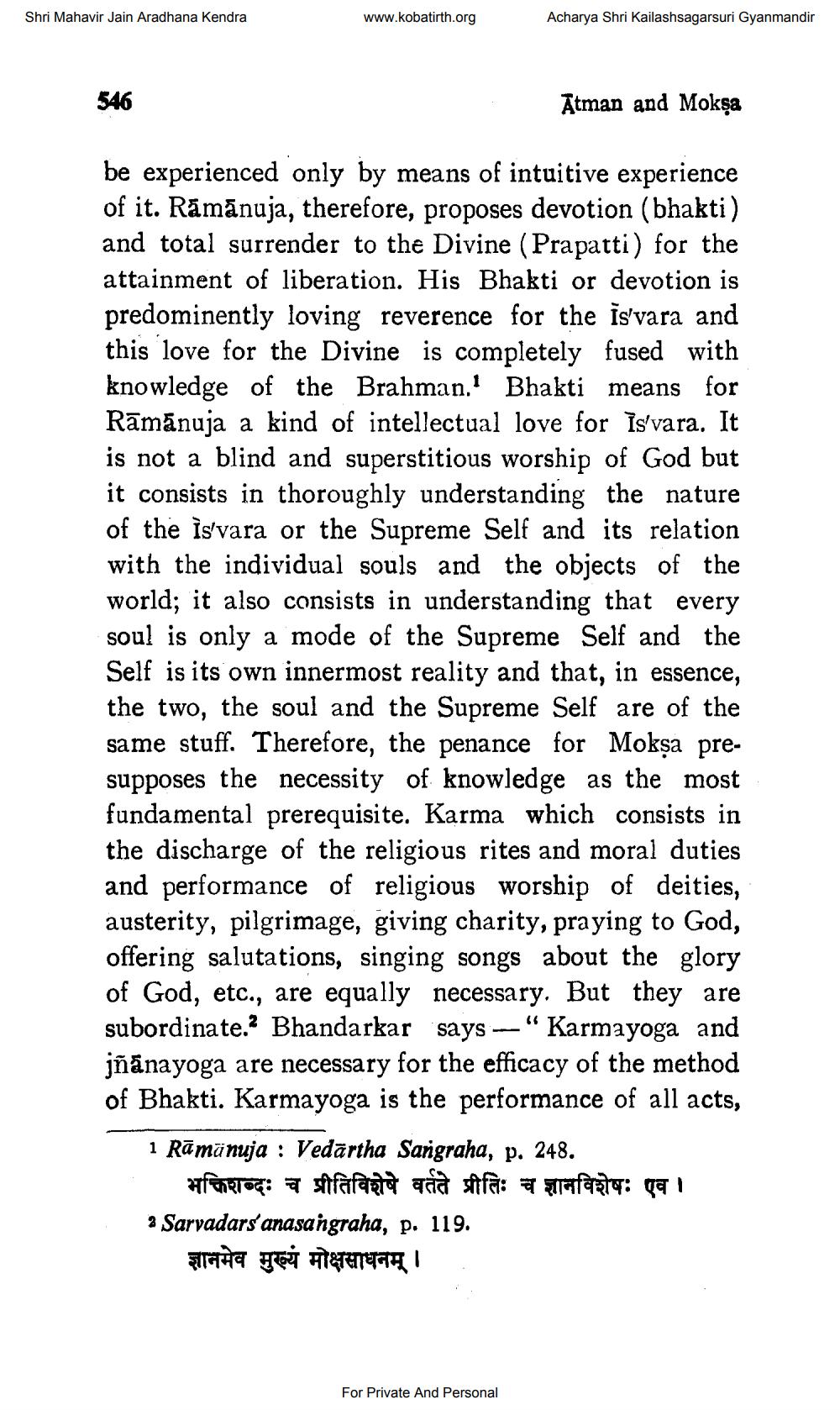________________
Shri Mahavir Jain Aradhana Kendra
www.kobatirth.org
Acharya Shri Kailashsagarsuri Gyanmandir
546
Atman and Mokşa
be experienced only by means of intuitive experience of it. Rāmānuja, therefore, proposes devotion (bhakti) and total surrender to the Divine (Prapatti) for the attainment of liberation. His Bhakti or devotion is predominently loving reverence for the isvara and this love for the Divine is completely fused with knowledge of the Brahman.' Bhakti means for Rāmánuja a kind of intellectual love for Is'vara. It is not a blind and superstitious worship of God but it consists in thoroughly understanding the nature of the isvara or the Supreme Self and its relation with the individual souls and the objects of the world; it also consists in understanding that every soul is only a mode of the Supreme Self and the Self is its own innermost reality and that, in essence, the two, the soul and the Supreme Self are of the same stuff. Therefore, the penance for Moksa presupposes the necessity of knowledge as the most fundamental prerequisite. Karma which consists in the discharge of the religious rites and moral duties and performance of religious worship of deities, austerity, pilgrimage, giving charity, praying to God, offering salutations, singing songs about the glory of God, etc., are equally necessary. But they are subordinate.? Bhandarkar says “Karmayoga and jñānayoga are necessary for the efficacy of the method of Bhakti. Karmayoga is the performance of all acts, i Rāmānuja : Vedartha Sangraha, p. 248.
भतिशब्दः च प्रीतिविशेषे वर्तते प्रीतिः च ज्ञानविशेषः एव । a Sarvadars' anasangraha, p. 119.
ज्ञानमेव मुख्यं मोक्षसाधनम् ।
For Private And Personal




